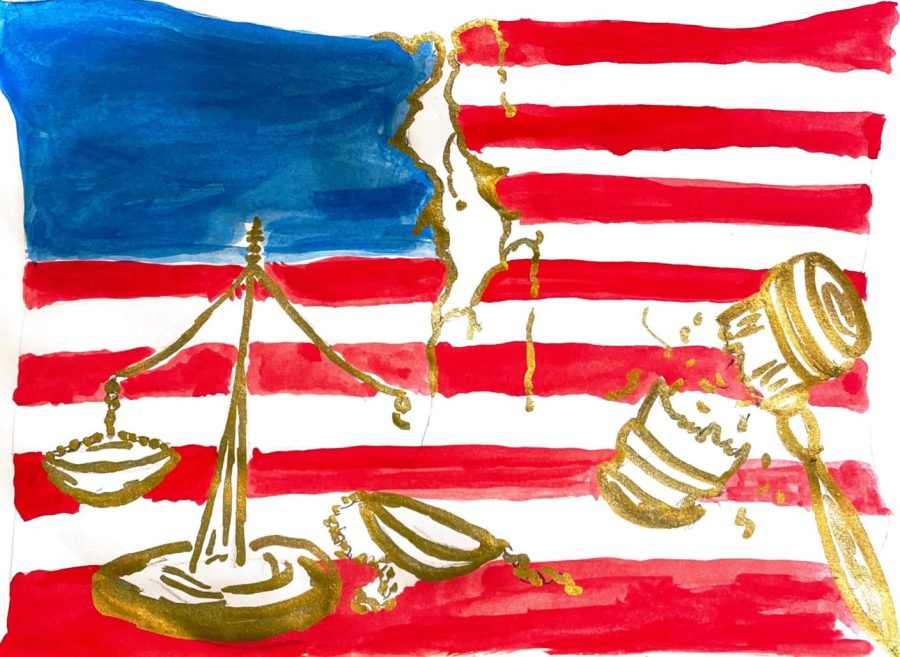Fear happens when information is not known’: 9/11 and Patriot Act
Following the 9/11 attacks, Arab and Muslim communities across the U.S. faced an onslaught of increased discrimination and surveillance through both social and government practices. In October of 2001, George W. Bush signed an act called the “Uniting and Strengthening America by Providing Appropriate Tools Required to Intercept and Obstruct Terrorism”, more commonly known as the Patriot Act.
The Patriot Act gives the U.S. government unprecedented access to private information and allows the Federal Bureau of Investigation (FBI) to embed itself in Arab and Muslim communities in America under the guise of preventing future terror attacks. This increased surveillance has brought increased levels of discrimination and hostility towards Arab and Muslim Americans.
With the expanded government access to personal information, FBI agents can file National Security Letters (NSLs) that grant them access to an individual’s phone, bank, Internet and credit card without a judge’s approval. These NSL files are never destroyed, even when an individual is not found guilty of any illegal behavior. According to the American Civil Liberties Union (ACLU), between 2003 and 2006, the FBI opened 192,499 NSLs, only one of which was found to be related to a terror conviction. According to a 2014 report from the Privacy and Civil Liberties Oversight Board this conviction could have been caught without the Patriot Act.
“There was a lot of [National Security Alliance] surveillance of folks’ phones that was justified through the Patriot Act,” said Kristjiana Gong, constitutional law teacher. “Folks were essentially being permanently recorded because they were tethered to a person that was suspected of terrorism, and then [the FBI] got to listen to your conversation until they heard something that [they viewed as] suspicious.”
Since its signing, many have questioned the Patriot Act’s constitutionality. The Act violates the Fourth Amendment of the Constitution, which protects people from unreasonable searches and seizures without probable cause. “But it’s designed to do that,” said Kristjiana Gong, constitutional law teacher. “It’s theoretically an attempt to lower the standard from probable cause for somebody that you’re suspecting of ‘terrorism’. But so much of the American conception, especially law enforcement conception of what terrorism is, tends to align with racial and ethnic minorities.”
American conceptions of terrorism, which Gong says are very intertwined with racial and ethnic minorities, mainly Middle Easterners, further exacerbated the discrimination that Arab and Muslim Americans faced following 9/11. Camillia Amiri ‘23, a co-leader of the Middle Eastern and North African (MENA) affinity space, recounted the comments that her Iranian mother was subjected to in New York during a job interview right after 9/11. “One of the first things the interviewer said was something like, ‘Man, I hate these Iranians for doing 9/11. All they do is want to kill us, like, all these [people] just want to kill us.’ And at the time, [my mom] didn’t say anything because [the interviewer] was in the position of power.”
“There’s always this assumed guilt in Middle Eastern people, which I didn’t really think about until I learned about the Patriot Act,” said Leili Kamali ‘25. “Even if you’re naturalized, or even if you’ve lived here for a really long time like my mom has.”
Alex Khosrowshahi ‘23 said the fearful relationship that Americans have with the Middle East often drives American misconceptions about the Middle East and Middle Easterners. “So many Middle Eastern nations are so cut off from the American consciousness in general, and most of what we hear about it is the bad s—,” said Khosrowshahi. “But a lot of people don’t realize that, like, Iran is also known for incredible education and producing some of the greatest mathematicians of all time. There’s also [this] incredibly rich culture—they have no idea what [the] f— Nowruz is.”
In an interview with The New York Times, Terry Albury, a former FBI agent, highlighted how the U.S. government, FBI and Patriot Act all simultaneously worked to promote and uphold the narrative that Muslims and Arabs were inherent threats to American security. “We’ve built this entire apparatus and convinced the world that there is a terrorist in every mosque and that every newly arrived Muslim immigrant is secretly anti-American and, because we have promoted that false notion, we have to validate it,” said Albury.
In the years following 2001, the FBI has coerced Muslim and Arab Americans into giving false terror confessions across the country.
Hamid Hayat, a Pakistani American man, was coerced into giving a false terror confession in 2006. 16-year-old Hayat was interrogated for more than 15 hours by five agents at an FBI facility in Placer County, California. The Bureau accused Hayat of being involved in a Pakistani terror camp, despite never having investigated the camp or Hayat prior to his immigration. Deprived of access to counsel or a translator, Hayat gave in and confessed to crimes he had not committed. Hayat was convicted using this false confession and served 14 of his 24-year sentence in prison until a judge overturned his conviction. Between his conviction and release, a U.S. attorney acknowledged that the FBI has no proof that the terror cell Hayat was accused of being a member of existed.
While some sections of the Patriot Act have expired, many have not, including the clause which enables warrantless access to bank, phone and Internet records have not.
Legal and social discrimination that Muslim and Arab Americans faced in post-9/11 America has yet to ease. American-directed fear of the Middle East has been a primary driver of this discrimination. “Fear happens when information is not known [and] when information is obscured,” said Khosrowshahi. “The most important thing is just to keep informed and actually listen to Middle Eastern people when they talk. Otherwise, you’re filtering everything through a viewpoint that is Orientalist, that is outdated [and] that is not true to the actuality of how things work.” ◼












